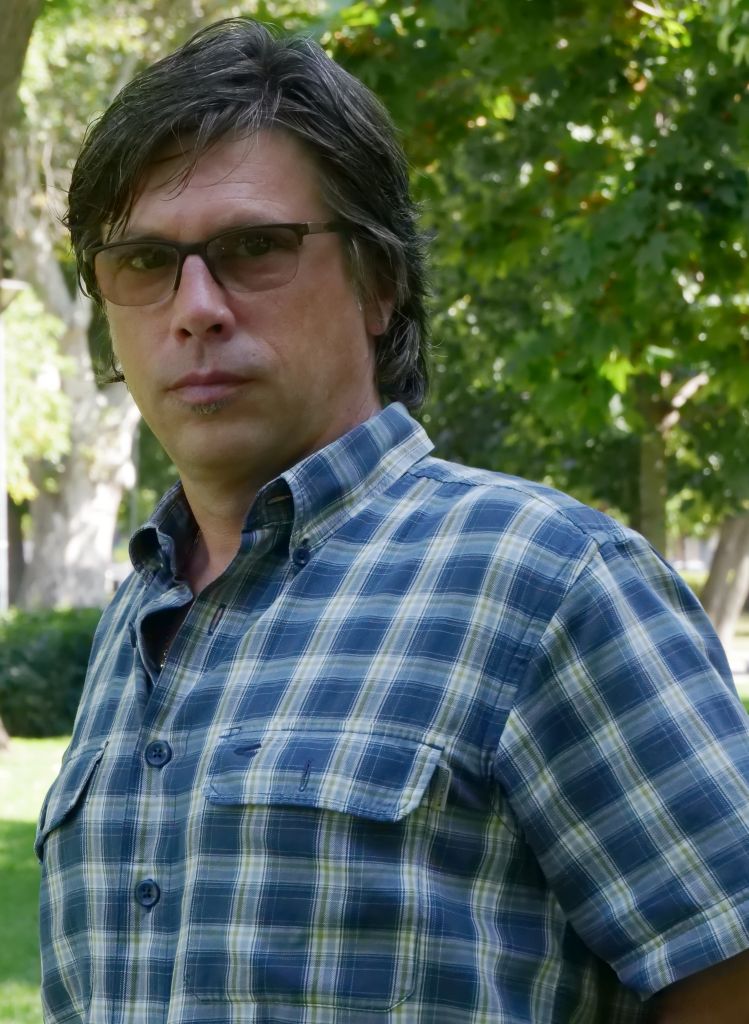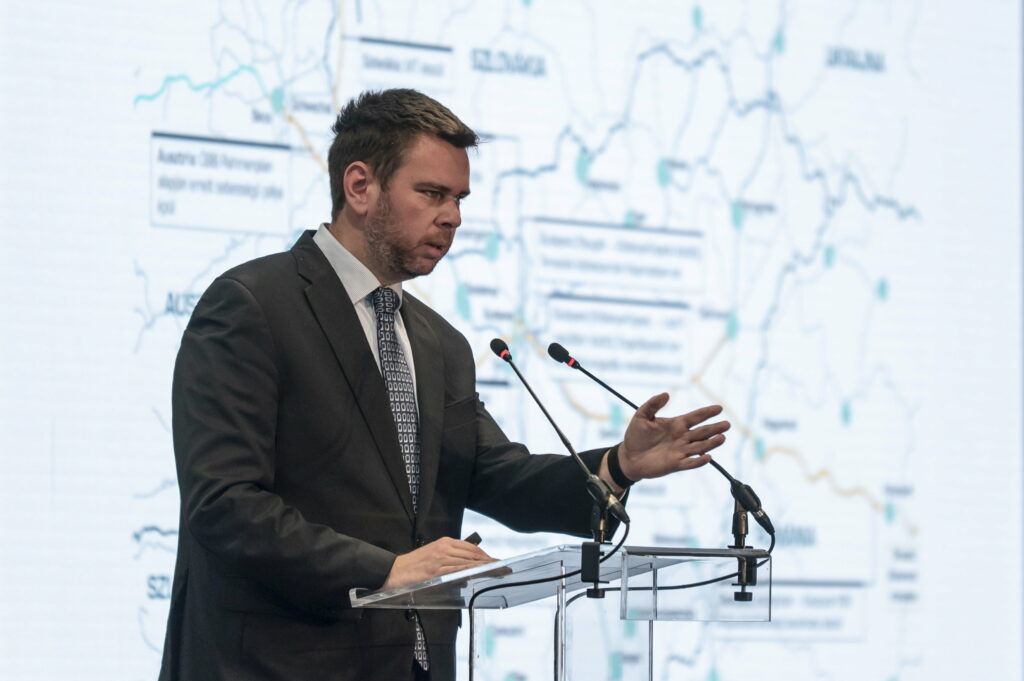The https://english.atlatszo.hu use cookies to track and profile customers such as action tags and pixel tracking on our website to assist our marketing. On our website we use technical, analytical, marketing and preference cookies. These are necessary for our site to work properly and to give us inforamation about how our site is used. See Cookies Policy
Ex-CEO of BKK advocates addressing regional injustice without dismantling the Budapest system
Hungary is the only place where there is a railway and no rail vehicle procurement in progress, said Dávid Vitézy, former CEO of BKK and former state secretary, in a podcast produced by Átlátszó. He also said that those who see Budapest’s development as a Budapest-countryside conflict do not understand anything about railways. But he also revealed whether he had a driving licence and whether he had deleted minister János Lázár’s number from his phone.
Dávid Vitézy’s name has been in the news a lot lately. He is often quoted and questioned about current transport anomalies; he is not afraid to voice his opinion, and his name is being mentioned more and more as a possible candidate for mayor of Budapest in the upcoming elections.

This attention is not surprising, given that Vitézy has been part of the Hungarian public for more than twenty years. He emerged as a transportation activist in the early 2000s and after spending considerable time in the civil sphere, he became the first CEO of the Centre for Budapest Transport (BKK) between 2010 and 2014, following the Fidesz victory in the capital.
He left the post after his falling out with then Budapest Mayor István Tarlós. He was then appointed Director General of the Hungarian Museum of Technology and Transport. In 2020, he became CEO of the Budapest Development Centre, a position he held as State Secretary from 2022, where he and János Lázár (Minister of Construction and Transport) did not find common ground.
At the beginning of our broadcast, we tried to clarify that, although we know his previous positions and the speculations about his future, it is not known where and what he is currently doing. The answer, which we hear in the recording, is that he now works exclusively abroad and that his current activities are not unconnected with the fact that he and his colleagues at BKK pioneered the idea of managing the use of public spaces for transport from a central point.
However, this time we did not talk to him concerning the capital’s public transport, but the problems concerning railways. First, we discussed the complications surrounding railway renovations. Vitézy argued that we should have timetable-based infrastructure development, which means we should measure and determine years in advance exactly where and at what intervals trains will pass, and the number of tracks, station buildings, and so on should be adapted accordingly.
In comparison, Vitézy says that the current approach is “where the situation is bad, let’s do something about it, and if we do, let’s build more, and then in the end, we’ll run out of money and just pull out the best technical content”.
Vitézy also explained why there are no real railway developments in Budapest. According to him, the capital is such a complicated railway junction, and it costs so much to do anything about it, that it is always postponed to the distant future. However, it would be a mistake to read anti-Budapest sentiment into this, as smooth rural rail services depend largely on capacity within the capital. If, for example, the tracks in the capital cross at the same level, which is a capacity limit, then it can take the fixed-guideway traffic as far as Salgótarján.
Of course, the podcast did not avoid the question of the increase in the cost of investment. Dávid Vitézy believes that it doesn’t matter whether a track is renovated or a new one is built, if the speed of the train is changed, it costs practically the same because the digital safety equipment is the major cost factor. Then we talked about the technical and market background and also about the fact that investments are also made more expensive by the demands of the Fidesz constituency chairmen. Asked whether he had personally encountered such demands, he said yes.
He also didn’t hesitate to say how he felt about the mentality and functioning of state or municipal enterprises.
“If public companies never face any competition, the only yardstick is how satisfied the politician who appoints the CEO is with the face of whoever is there, it’s not going to produce a good performance,” he says, adding that “it’s going to end up being a socialist big business”.
The relationship between the public and private sectors has been raised, both in Hungary and in other European countries.
Overall, Vitézy sees the way EU funds have been used for rail transport as a good thing, as the money has gone to the right places and financed good projects. The problem is that domestic resources, taxpayers’ money, are almost exclusively spent on motorways. We have caught up with Austria’s motorway network and even overtaken it, while the rail network is not only lagging behind Austria but also behind the Czech Republic and Poland. According to Vitézy, we should say that we are now only developing railways.
This is contradicted by last year’s measure to close many of the lines, which Vitézy repeatedly claims he did not know about. Here he noted that he did not understand János Lázár – whose number he said he still had in his phone – as he considered the tram train to be exemplary. It should be like this, Vitézy says, in other big cities, Debrecen, Győr, Fehérvár and elsewhere.
At this point, we turn to Budapest because it was in Debrecen that Minister Lázár explained that the problem with the Budapest lease is that people from Pest can use the provincial lines, while the reverse is not true, and he says this is unfair. Vitézy, on the other hand, believes that the solution would be to create similar schemes in the agglomerations of the county capitals.
In this episode of the podcast, Átlátszó and Dávid Vitézy tried to untangle the Budapest-rent problem and its legal-political background. The former BKK leader reiterated that the capital should have initiated negotiations earlier, while the ministry is sometimes able to formulate absurd anti-Budapest texts, and overall this does not lead to good things.
When Átlátszó asked him about the mayoral candidacy, Vitézy said he was interested in the possibility because, in his view, the capital’s development had come to a standstill. But he also condemned the capital’s administration for the cycle lane on Üllői út, not because of the existence of cycle paths, but because of the way they were built. Vitézy was then asked whether he had a driving licence. The answer is revealed in the recording, as is his personal relationship with Viktor Orbán and how old he was when he first drove traffic.
András Hont and Csaba Segesvári participated in the podcast on behalf of Átlátszó. You can listen to the full broadcast on Youtube, Soundcloud, Spotify, Google Podcast, Player. fm and more.
Translated by Zita Szopkó. The original, Hungarian version of this article was written by András Hont and can be found here. Cover photo: Dávid Vitézy, State Secretary for Transport at the Ministry of Technology and Industry, speaks at the 5th Hungarian Transport Conference in Eger, 11 October 2022. Source: MTI/Peter Komka.
Share:
Your support matters. Your donation helps us to uncover the truth.
- PayPal
- Bank transfer
- Patreon
- Benevity
Support our work with a PayPal donation to the Átlátszónet Foundation! Thank you.
Support our work by bank transfer to the account of the Átlátszónet Foundation. Please add in the comments: “Donation”
Beneficiary: Átlátszónet Alapítvány, bank name and address: Raiffeisen Bank, H-1054 Budapest, Akadémia utca 6.
EUR: IBAN HU36 1201 1265 0142 5189 0040 0002
USD: IBAN HU36 1201 1265 0142 5189 0050 0009
HUF: IBAN HU78 1201 1265 0142 5189 0030 0005
SWIFT: UBRTHUHB
Be a follower on Patreon
Support us on Benevity!

